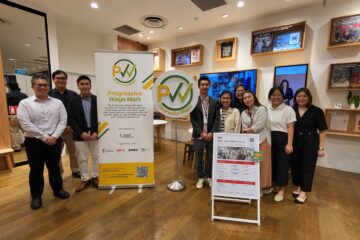
Pro-enterprise panel: support for businesses
An ongoing Government initiative seeks to cut red tape and be more responsive to the needs of businesses
The Pro-Enterprise Panel (PEP) is a private-public panel made up of business leaders and supported by a network of senior public officers. Chaired by the Head of Civil Service, the PEP serves as an advocate for the business community within the Government, with the aim of creating a more pro-enterprise environment to help businesses flourish.
The body works closely with public agencies to address the regulatory challenges that the local business community faces. According to the PEP, over 1,900 suggestions have been received from businesses, with more than 1,100 already influencing changes in rules or regulations. The panel also encourages entrepreneurs to be more innovative.
Here are some of the initiatives the PEP has worked on to support local enterprises:
Doing away with company stamps
Companies were previously required to affix their company stamps when submitting government forms to verify their identities. However, this process has become outdated as there are alternative ways to provide authentication through digital platforms such as CorpPass.
To address this issue, the PEP undertook a review of this requirement. As a result, since October 2018, all government agencies no longer require companies to affix company stamps on government forms unless required by law. This includes tender-related documents submitted through GeBiz. This has helped businesses save time and reduce compliance costs when dealing with the government.
Easing audit requirements
Acting on feedback, the PEP worked with the Ministry of Finance to allow companies with annual turnovers of less than S$5 million to submit unaudited accounts to renew their Government Supplier Registration. This reduced the cost to businesses of participating in government tenders.
First Mover Framework
This initiative provides innovative companies with a headstart by giving them better access to public assets to implement their ideas. One example involved local SME The Travelling Farm (TFF), which aims to bring gardening to the masses.
The company was previously housed in a 20-foot retrofitted cargo container that moved to different public spaces. Under the First Mover Framework, the National Parks Board agreed to grant TFF the use of park spaces for 36 months.
PEP Note: You may submit your feedback on regulatory challenges to [email protected], or visit www.mti.gov.sg/en/PEP/PEP-Suggestion/Submit-PEP-Suggestion

















